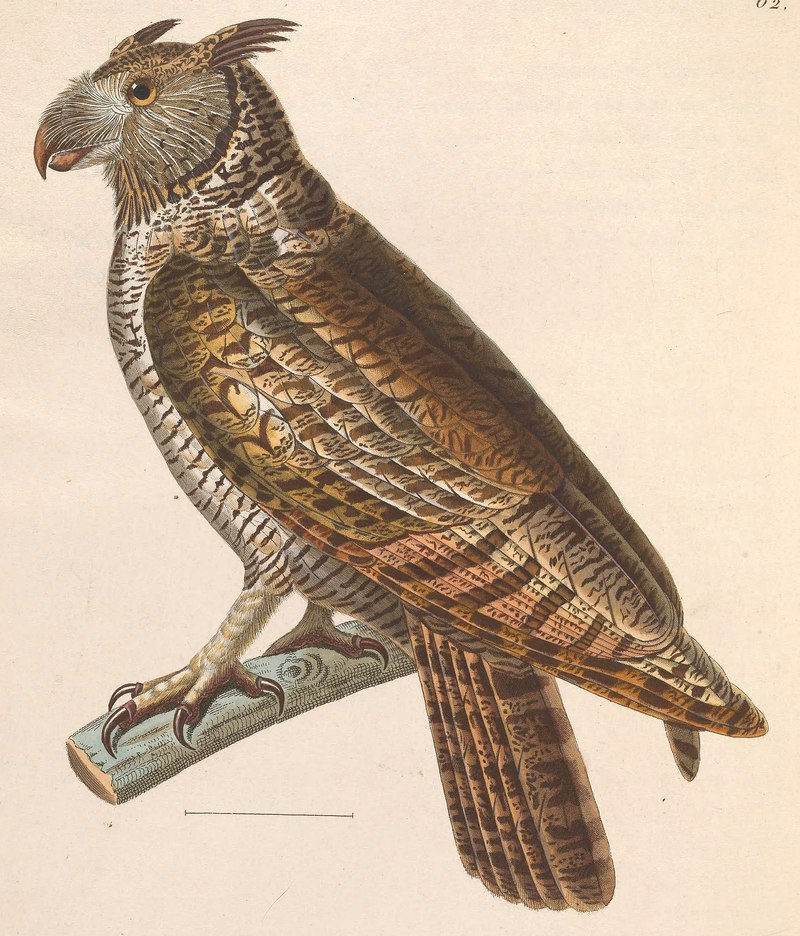|
| Query: Vole | Result: 151st of 172 | |
Strix macrorhyncha = Bubo virginianus nacurutu (South American great horned owl)
| Subject: | Strix macrorhyncha = Bubo virginianus nacurutu (South American great horned owl)
| | Poster: | Wiki Photos (---@---.---)
| |

| Resolution: 1751x2048
File Size: 965005 Bytes
Upload Date: 2024:01:26 10:38:33
|
Hibou a gros bec
STRIX MACRORHYNCHA. Temm.
English: « Strix macrorhyncha » = Bubo virginianus nacurutu (Subspecies of Great Horned Owl)
Français : « Strix macrorhyncha » = Bubo virginianus nacurutu (Sous-espèce de Grand-duc d'Amérique)
Date 1838
Source Nouveau recueil de planches coloriées d'oiseaux
Author Nicolas Huet (1770–1830); Jean Gabriel Prêtre (1768–1849)
Source: https://commons.wikimedia.org/wiki/File:Bubo_virginianus_nacurutu_1838.jpg
The Great Horned Owl (Bubo virginianus) is a large owl native to the Americas. It is a powerful, mottled-brown predator that ranges from Arctic tree limits south to the Strait of Magellan. The Great Horned Owls are extremely adaptable birds with a vast range and is the most widely distributed true owl in the Americas. Bubo virginianus is often more than 60 cm long, with a wingspan often approaching 200 cm. Its primary diet is rabbits and hares, rats and mice, and voles, although it freely hunts any animal it can overtake, including rodents and other small mammals, larger mid-sized mammals, birds, reptiles, amphibians, and invertebrates. The South American great horned owl (Bubo virginianus nacurutu) is a subspecies of the great horned owl, Bubo virginianus, and is known to inhabit tropical South America. It generally occurs in more open areas than the North American great horned owls and avoids dense humid forest, such as the Amazon Rainforest.
Order: Strigiformes
Family: Strigidae
Genus: Bubo
Species: Bubo virginianus (Gmelin, 1788)
Synonyms
- Strix virginiana Gmelin, 1788 |
^o^
Animal Pictures Archive for smart phones
^o^
|
|